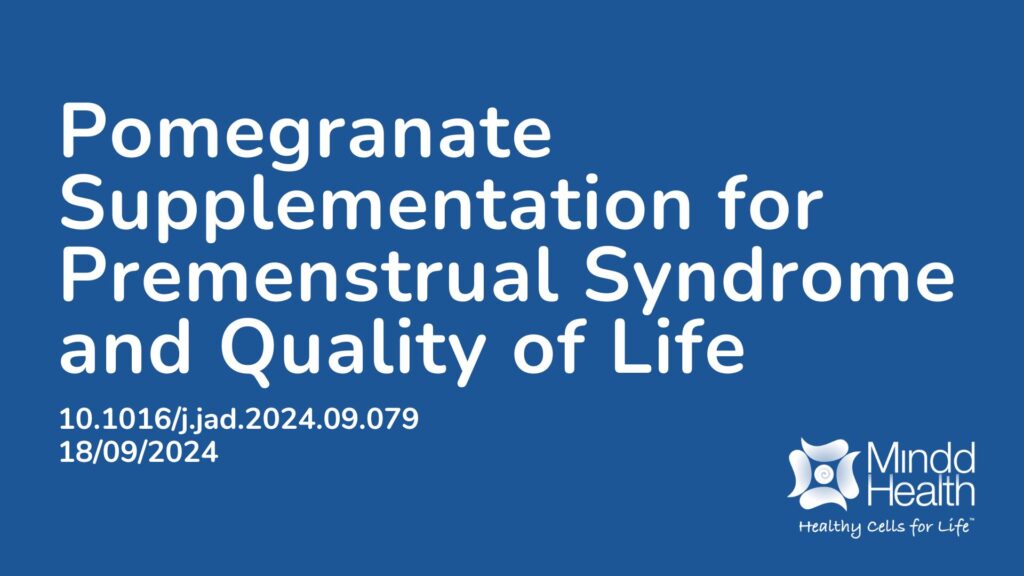Summary:
Premenstrual syndrome (PMS) is characterised by emotional, behavioral, and physical symptoms occurring in the luteal phase of the menstrual cycle and resolving around menstruation. Nearly half of women of reproductive age experience PMS, with common symptoms including mood changes, breast tenderness, bloating, headaches, and gastrointestinal issues. PMS negatively impacts quality of life, social relationships, work productivity, and sleep quality. The exact causes of PMS are unclear but may involve hormone fluctuations, neurotransmitter dysfunction, genetic factors, nutrition, and psychosocial stress. Current treatments include pharmaceutical and non-pharmaceutical approaches; however, medication use is limited by side effects, leading many women to seek natural alternatives. Pomegranate is a fruit rich in antioxidants and polyphenols with anti-inflammatory, antioxidant, and mood-enhancing properties, partly due to its estrogen-like activity. This randomized controlled trial examined the effects of pomegranate extract supplementation on PMS symptoms and quality of life in 60 women with PMS. The intervention group received pomegranate extract for two menstrual cycles, while the control group received no treatment. Results showed a significant reduction in PMS symptoms in the pomegranate group compared to controls. Additionally, social quality of life improved in the intervention group. These findings suggest that pomegranate supplementation may be a natural, effective option to reduce PMS symptoms and enhance aspects of quality of life.
Abstract:
Background: The aim of this study was to find out how well pomegranate use affects quality of life and PMS symptoms. Methods: This randomised controlled trial (Clinical trial number: NCT06201702) was conducted in a city in the western region of Turkey, reaching women with PMS through social media announcements. Data were collected between 2 January 2024 and 15 May 2024. In the study of 60 participants (intervention group: 30, control group: 30), the intervention group was given pomegranate exrat supplementation for 2 cycles, while the control group did not receive any intervention. The research data were collected through a descriptive information, Premenstrual Syndrome Scale and World Health Organisation Quality of Life Scale. IBM SPSS Version 23 software was used for data analysis. Chi-square test, paired sample t-test and independent sample t-test were used. P-value <.05 was considered statistically significant. Results: When the intervention and control groups were compared in terms of premenstrual syndrome scores, a statistically significant difference was found and it was observed that symptoms decreased significantly in the intervention group after the intervention (p < .05). However, no statistically significant change was observed in the control group (p > .05). When the quality of life scores after the intervention were evaluated, it was seen that the social quality of life of the intervention group was higher than the control group (p < .05). Conclusions: This study shows that pomegranate may be a potential natural solution, especially in reducing PMS symptoms, and may also be effective in improving social quality of life.
Article Publication Date: 18/09/2024
DOI: 10.1016/j.jad.2024.09.079



